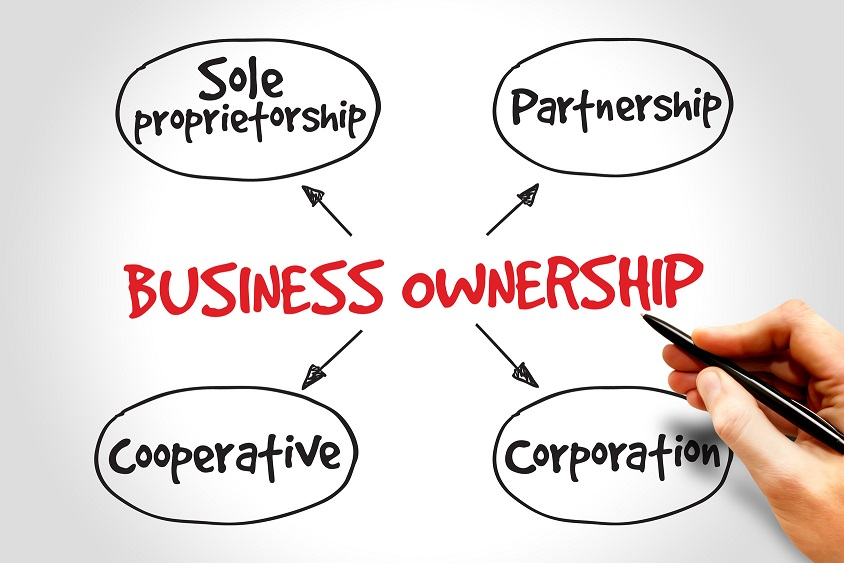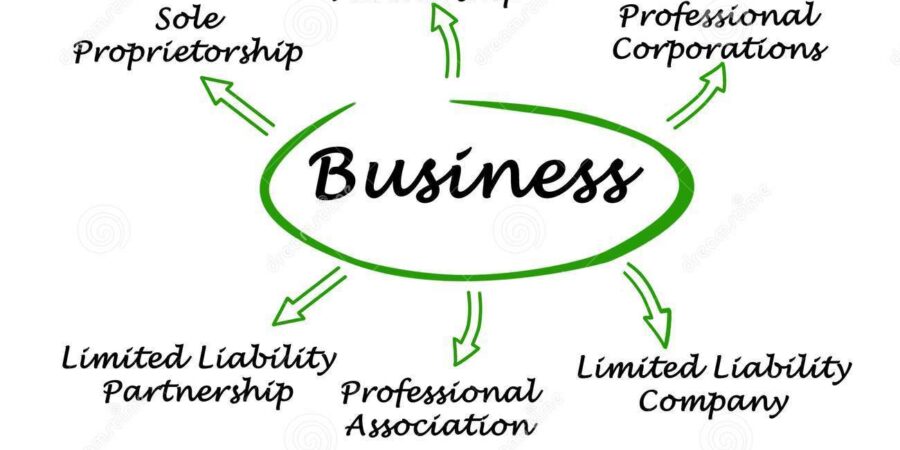If you’re thinking about creating the Most Common Types of Businesses, you should think about the type of structure you’ll use. The sort of business you choose can have an impact on how much money you pay in taxes, how much paperwork you have to complete, how much personal liability you have, and even how much money you can generate. Choosing the proper type of business needs extensive research and consideration. In this post, we’ll go over the various sorts of businesses and offer advice on how to decide which one to start.
Although it’s crucial to note that responsibility, ownership restrictions, taxes, and filing requirements might differ by state, these are the most popular forms of business structures.
Sole proprietorship
This is the most basic sort of business, with simply a single individual or a married couple accountable for all revenues and debts. This may be the ideal option for you if you plan to work alone. Because income and costs are reflected in your personal income tax record, this form of business might be very tempting. The Schedule C tax form is used to record your profits and losses, and the amount is then transferred to your personal tax return. Losses in the firm might be used to offset profits from other sources. You also have entire ownership and control over this form of business, and you make all of the choices.
The disadvantage of a sole proprietorship is that you are personally liable for the liabilities of your business. This means that your personal assets may be put at risk in order to pay off a corporate debt or settle a legal claim against you.
Partnership
If your company will be owned and run by numerous people, a partnership may be the best option. There are two types of limited partnerships: general partnerships and limited partnerships. The partners in a general partnership are responsible for the debts in the most common types of businesses. However, there are both general and limited partners in a limited partnership. The limited partners are just financial investors who have no control over the company and are not liable. The general partners own and operate the company and are responsible for its liabilities.
Because of the administrative complications and needed filings, the limited partnership may not be the best type of firm to start as a new business owner unless you expect to have numerous passive investors. A general partnership is easier to form if you plan to have two or more active participants in the business. The tax advantages are one of the perks of this form of business. A partnership does not pay taxes on its profits or losses; instead, the profits and losses are distributed to the partners. They’re usually more expensive to start since they require more thorough accounting and legal services.
Limited liability company (LLC)
Owners, partners, and shareholders of this sort of business can restrict their personal liability and preserve their own assets. Although an LLC is not incorporated, it has the same limited liability protection as a corporation. A limited liability company (LLC) can be taxed as a sole proprietorship, a partnership, or a corporation.
One of the advantages of an LLC is that there are no restrictions on the number of stockholders the company can have. In addition, each owner or member can have a complete say in how the business is run. Profits can also be distributed in a variety of ways. Profits and losses are not need to be divided in proportion to the amount of money invested. Because LLCs are a relatively new corporate entity, tax treatment varies by state.
Corporation – C corp
Personal liability protection is best provided by corporations, but the cost of forming a corporation is considerably higher. Corporate reporting, record-keeping, and operational processes are also more extensive. Shareholders have no influence over corporations. They pay income tax on profits and may be taxed twice in some instances. They do have an advantage when it comes to obtaining finance because they can sell stock. Employees may be interested in stock options if they are offered.
Corporation – S corp
An S corporation combines the liability protection of a corporation with a number of tax advantages. If a S corporation’s owners do not hold inventory, they can adopt the cash method of accounting. They can have up to 75 shareholders, which allows them to raise additional money. S corporations, like all businesses, must file articles of incorporation and hold director and shareholder meetings. They must also provide shareholders the opportunity to vote on significant issues. S businesses are limited to issuing common stock, which may limit their capacity to obtain funds in most common types of businesses.

Corporation – B corp
A B corporation, often known as a benefit corporation, is a for-profit company with a goal and a profit motive. They are taxed similarly to C corporations, but with a greater emphasis on purpose, accountability, and openness.
Corporation – nonprofit
Nonprofit corporations are set up with the goal of undertaking charitable activity. They can get tax-exempt status and avoid paying profits taxes because their work serves the public. They follow the same organizational regulations as a C corporation, but they have additional profit rules.







Leave a Reply